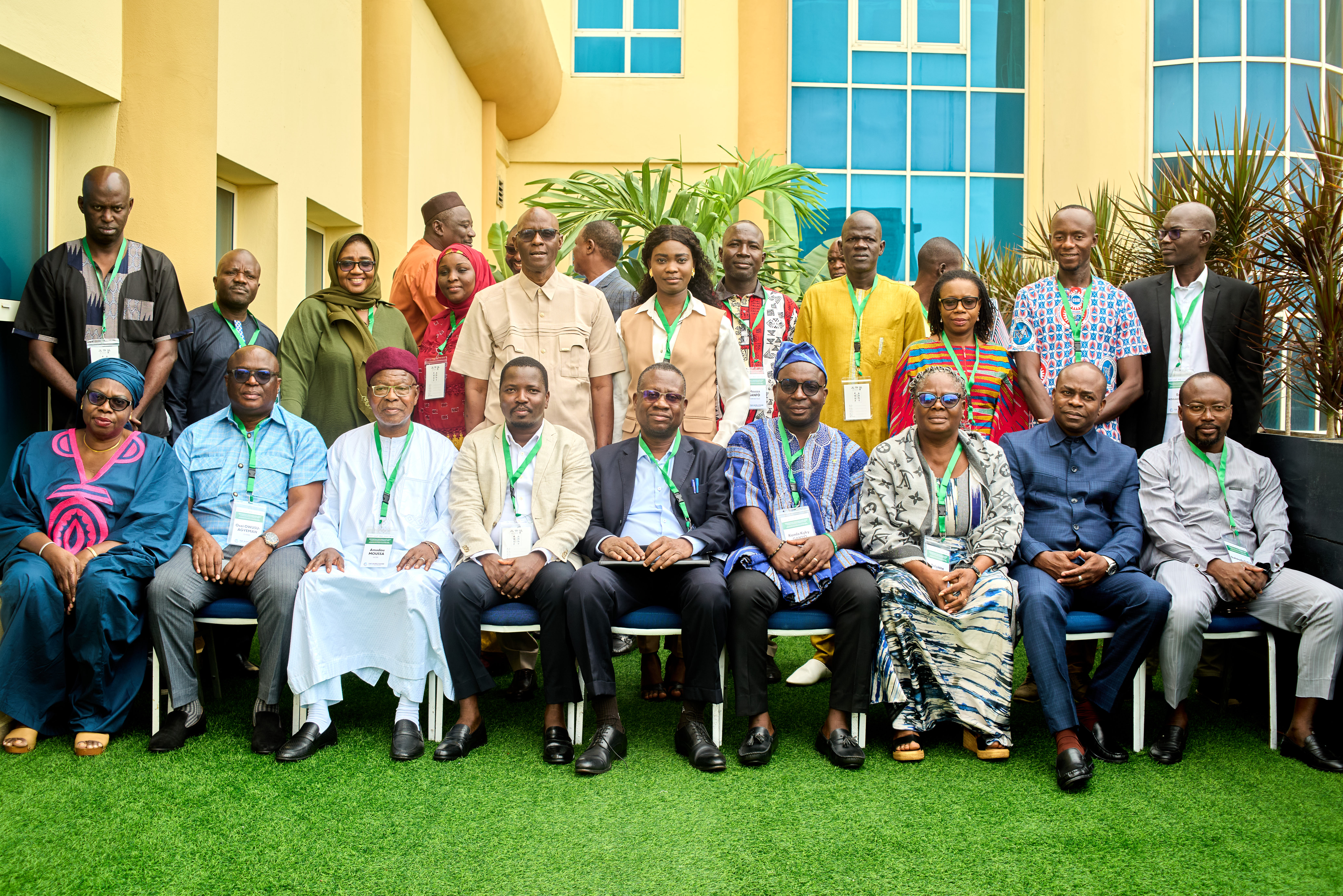News
CORAF is an important organization working to improve food and nutrition security in West Africa. CORAF's recent initiatives are a promising sign of its determination to meet the challenges facing West Africa.
CORAF and the Alliance of Bioversity International and CIAT stimulate the adoption of climate-smart technologies in the rice value chain

Published on: 08/29/2024
In the face of climatic challenges, strategic crops such as rice must adapt to ensure the resilience of production systems. With this in mind, CORAF, in partnership with the Bioversity International Alliance and CIAT, through the AICCRA(Accelerating the Impact of CGIAR Climate Research in Africa) Africa Rice project, and the Food System Resilience Program (FSRP), organized a regional workshop in Cotonou, from August 26 to 28, 2024, to discuss innovations and technologies capable of strengthening the resilience of rice systems, with a view to their adoption and scaling-up in West and Central Africa.
Climate-smart technologies at the heart of discussions
Dr Elliot Dossou-Yovo, AICCRA Mali coordinator, presented the various proven technologies available to participants, including country coordinators, rice specialists and agricultural advisors from FSRP implementing countries, stressing the need to create effective mechanisms for their large-scale adoption. Several climate-smart technologies and innovations, such as RiceAdvice, Smart-Valleys, alternative wetting and drying (AWD), the integrated rice-fish system, Pay as you go, climate-resilient rice varieties were identified and demonstrated their potential to optimize production while taking into account climatic constraints. These innovations are crucial to improving the resilience of farming systems, boosting productivity, and guaranteeing food security for millions of people in the region.
" In the rice value chain, several technologies, innovations and research knowledge have been developed and deployed in the countries. These innovations need to be scaled up in order to reach and positively impact the final beneficiaries, i.e. family farms ", said Dr. Angelo DJIHINTO, representing INRAB at the opening of the workshop.
" General awareness of climate change has led to the development of several climate-smart approaches and technologies, which unfortunately remain unknown to the general public, particularly in the agricultural sector. Their widespread adoption is essential for the resilience of our food systems," emphasized Dr Komla Kyky Ganyo, CORAF's FSRP technical assistant.
For Dr Alcade Segnon, researcher at the Alliance of Bioversity International and CIAT, and West Africa Scientific Manager of the AICCRA project, "it is essential to disseminate these technologies on a large scale for the benefit of African producers".
Funded by the World Bank and implemented by Bioversity International Alliance and CIAT, the AICCRA project aims to promote the adoption and use of climate-smart agricultural technologies and innovations, as well as climate information services. In West Africa, the aim is to ensure the scaling-up of these technologies and innovations through multi-stakeholder partnerships. The World Bank-funded Food System Resilience Program for West Africa (FSRP), implemented in 9 countries, is seen as an ideal channel for this large-scale dissemination of technologies in the rice value chain. This workshop aims to inform FSRP stakeholders about these available technologies and define actions for their adoption in the region.
Experts unite for a common strategy
The workshop provided an opportunity for participants to share their knowledge and experience of the technologies already implemented in their countries and the various constraints to their adoption. At the end of the presentations, participants identified key activities, recommendations for FSRP implementing countries and the best strategies for disseminating these technologies to farmers, with particular emphasis on family farms, which account for a large share of rice production in the region.
" We were very interested in the Smart-Valley technology because it requires the mobilization of the whole community, especially women. Back in Mali, we're going to raise awareness among more stakeholders so that we can implement this innovation in Mali ", said Sory Ibrahim Konaté from the FSRP Mali team.
The workshop also produced a clear roadmap for the use and scaling-up of climate-smart technologies in the rice value chain. This roadmap includes concrete actions to strengthen technology adoption in FSRP implementing countries.
Other news
View allTowards a strengthening of CORAF's actions in...
A delegation from CORAF, led by its Chairman of the Board, Dr Kalifa TRAORÉ, its Executive Director, Dr Moumini SAVADOGO, and its...
A strong plea for African women entrepreneurs...
Many women in West and Central Africa live in an unfavorable environment, with limited access to information,...
CORAF strengthens its partnerships in Burkina Faso...
As part of its mission to strengthen institutional and technical collaboration, a delegation from CORAF, led by its Director,...
Training today's and tomorrow's researchers:...
When AMABA Akéta Akpadji Rébecca completed her Master's degree in Plant Biology in Togo, she was faced with uncertainties about...